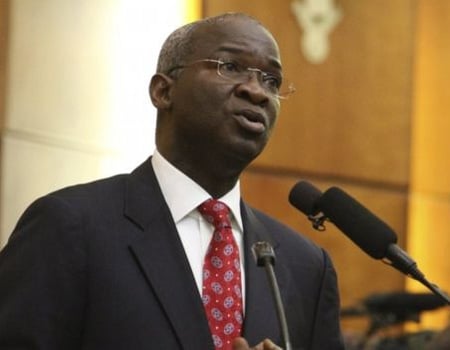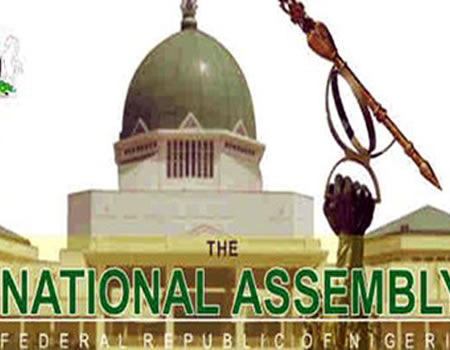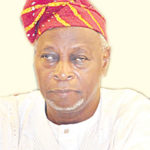The Senate, through its spokesperson, Senator Aliyu Sabi Abdullahi, in a statement noted that Mr Fashola did not give members of the public full details about the Lagos-Ibadan Expressway, which has been on a private finance initiative from the beginning because he would prefer an arrangement that allowed the ministry to continue to award contracts and fund the project through government budgetary allocation at a time when the nation’s revenue is dwindling and at an all-time low.
This is just as the House of Representatives has also asked Fashola to guard his utterances on the 2017 Appropriation Act, while reminding the executive arm of government of “certain understanding the National Assembly leadership had “with it on the issue,” which they said were “in good faith.”
Abdullahi stated that the Bureau of Public Procurement, and the Federal Executive Council in 2013, approved the reconstruction, rehabilitation and expansion of the Lagos-Ibadan Expressway as a Public Private Partnership project using the Private Finance Initiative, with the Federal Government providing about 30 percent of the funding, while the balance would be provided by the private sector.
The project was on course for completion by end of 2017 when the private finance initiative was being implemented, with over 30 percent completion rate attained as at early 2015.
He claimed that in a blatant disregard for existing agreements, constituted authorities and extant laws, Fashola on assumption of office, got government, through the ministry to start voting money for the implementation of the project.
According to him, “Even as at last year the 2016 Appropriation Act voted N40 billion for the project on the insistence of the ministry and only N26 billion was released. If we had known, the rest N14 billion could have been allocated to other critical roads across the country.
“In the spirit of consensus building and effective stakeholder engagement, the leadership of the Senate met with key relevant stakeholders, including the Ministries of Works and Finance. It was agreed that we should give the Private Finance Initiative a chance to complement government’s resources in the delivery of critical infrastructure assets across the country.
“Hence, in this year’s budget, we have engaged with the government and private sector groups who have assured that they will resume funding of the project. So, we only provided the fund in the budget that would ensure work does not stop before the funds from the private sector start coming in.
“What we reduced from Lagos-Ibadan Expressway in the 2017 budget estimate was spread on Oyo-Ogbomoso Road in the South-West, Enugu-Onitsha Road in the South-East, and two other critical roads in the North-East and North-West; and this was done to achieve equity. The minister should realise he is minister for the entire country and not just that of Lagos State.
“It is our view that the Federal Government cannot fund the reconstruction and maintenance of all the 34,000 kilometres of roads under its care. We are looking for private funds for some of these roads, particularly those with high potentials of attracting private investors.
These include the Enugu-Onitsha Road, Kano-Abuja road and Abuja-Lokoja Road. It has been our hope that the Lagos-Ibadan Road would be a model for private sector funding of infrastructure in the country,” the spokesman stated.
The lawmaker insisted that Fashola knew that Federal Government cannot fully fund this road for completion by 2019 as he is promising Nigerians.
“It’s a deceit of the highest order. Just going by the last two years of funding where an average of about N30b per annum was released then the nation would have to wait for the next six years for completion of the work .But with Private sector Finance Initiative, this project can be completed on time because full funding will be provided and there will be more certainty,” he stated.
He noted that since government did not have enough money and/or unlimited resources to provide all the needed road infrastructure on a sustainable basis, the use of funds from the private sector to complement government’s resources would ease pressure on the annual budgetary provisions for infrastructure provision, as more money would be spent on less commercially viable roads that would not ordinarily attract private sector investment, as well as other social services like education, health and human capital development.
“Mr Fashola obviously wants the Federal Ministry of Works to have many construction projects it can award contracts for and that is why he would always oppose any attempt to allow the private sector financing initiatives through the Public Private Partnerships or other levels of government to fund construction of roads under the control of the Federal Government. That was why he waited until he was arm-twisted on the Lagos Airport road before he allowed the Lagos State Government take up the reconstruction, using private funds. Same thing happened to the proposal for the Apapa Wharf road, which was frustrated for over a year before the stakeholders reined in the ministry to grudgingly approve that Dangote and Flour Mills should take over the project.
“It should also be explained that nobody introduced budgetary provisions for the sinking of boreholes and construction of clinics under the budget of the Works division of the ministry. However, the Housing division would ordinarily have provision for such facilities in its estimate, so as to meet the Sustainable Development Goals as provided for by the United Nations.”
House carpets minister
The House, in a statement by the chairman, House Committee on Media and Public Affairs, Honourable Abdulrazak Namdas claimed that, “it is very misleading and calculated mischief to simply say that N5 billion was taken from the Budget for 2nd Niger Bridge. The truth is that in the 2016 Budget, N12 billion was appropriated for the 2nd Niger Bridge and not a kobo was spent by the Ministry. Not a kobo. The money was returned. The Ministry could not provide the Committees of the National Assembly with evidence of an agreement on the Public Private Partnership (PPP) or a contract for the 2nd Niger Bridge.
“The National Assembly, in its wisdom decided to fund other projects from the South East leaving N7 billion for the 2nd Niger Bridge that may yet be unspent. The projects include – N2.5 billion extra for Enugu/Onitsha Road, N1 billion more for 9th Mile/Nsukka/Makurdi Road; additional N500m for Oturkpo – Makurdi to take care of evacuation of agricultural produce up to Maiduguri ; N1 billion more for Ikot Ekpene-Aba-Owerri Road etc. These are strategic Roads in the South-East and North Central parts of Nigeria that had inadequate allocations.
“The National Assembly had to intervene to fund some other critical roads that were totally neglected in the Executive Budget proposal. Example is the Abuja- Kaduna – Zaria – Kano Road that had Zero allocation from the President’s proposal and no contract even in spite of due process certification. N5 billion was provided in the 2016 Budget. It was not utilised. In 2017 Budget, the National Assembly again provided N3 billion for this very critical road that connects many states and where incidents of kidnapping are rife because of bad roads, as we believe that all parts of Nigeria deserve attention or would the Minister also claim that this road has no design?”, the statement posited.
On the Lagos-Ibadan Expressway, Honourable Namdas claimed that, “leadership meetings of both the Executive and Legislature were held where it was clarified that alternative funding exists for the road through PPP arrangement and the concessionaires had enough money to fund the project. That informed the decision to move some funds to other areas of need and the Minister of Power, Works and Housing is fully aware of this but chose to ignore it. Why spend government money if there is a clear existing funding framework in place and so many ongoing road projects are unfunded?
“On the Mambila Power Project, the Minister proposed a whopping N17 Billion for only Environmental Impact Assessment (EIA). N17 Billion Naira! The National Assembly felt that N17 Billion for EIA was misplaced and patently unjustifiable! The Minister himself even wrote to the National Assembly to move some funds from this sub-heads to others!”







